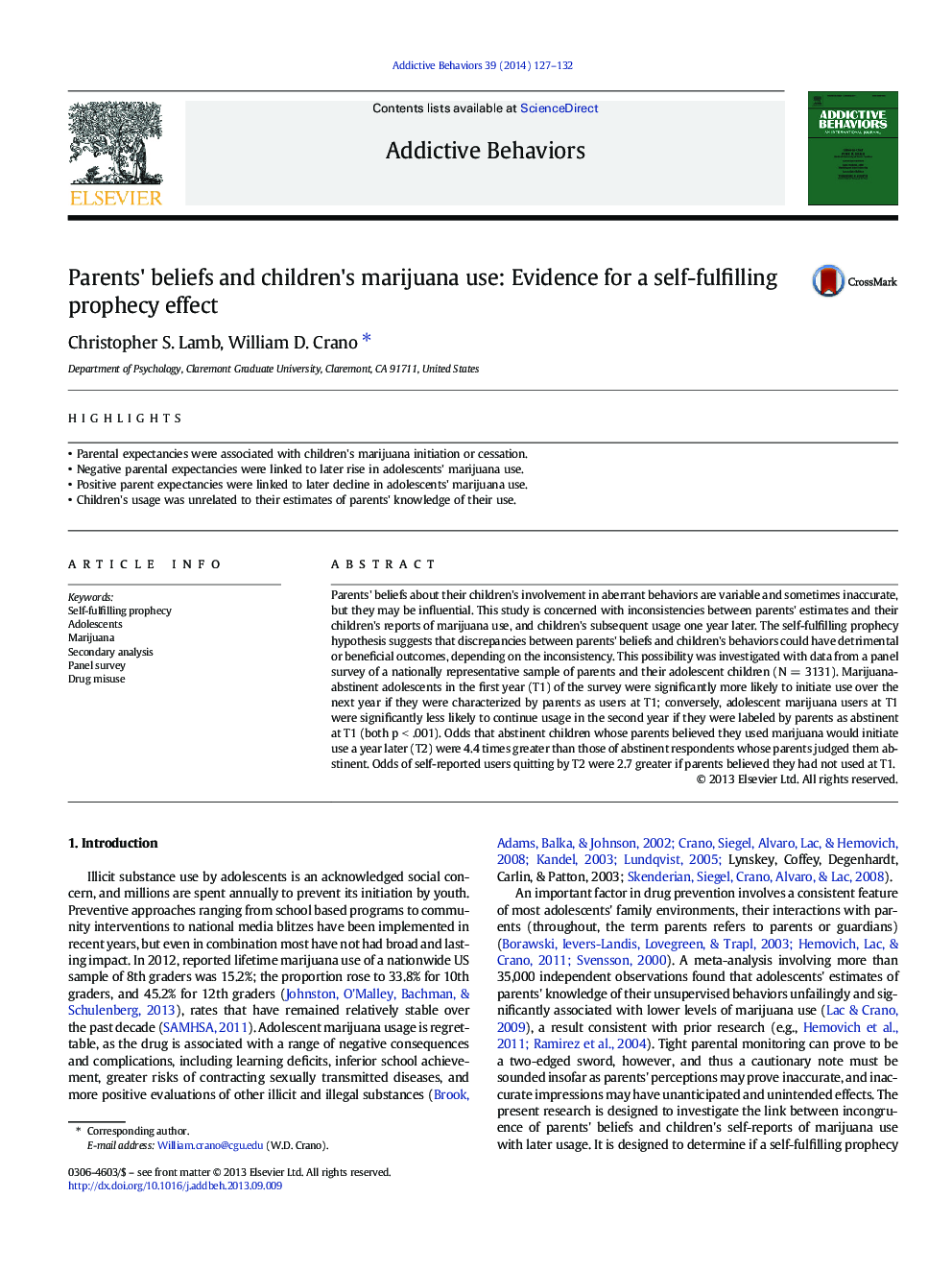| کد مقاله | کد نشریه | سال انتشار | مقاله انگلیسی | نسخه تمام متن |
|---|---|---|---|---|
| 898983 | 915352 | 2014 | 6 صفحه PDF | دانلود رایگان |
• Parental expectancies were associated with children's marijuana initiation or cessation.
• Negative parental expectancies were linked to later rise in adolescents' marijuana use.
• Positive parent expectancies were linked to later decline in adolescents' marijuana use.
• Children's usage was unrelated to their estimates of parents' knowledge of their use.
Parents' beliefs about their children's involvement in aberrant behaviors are variable and sometimes inaccurate, but they may be influential. This study is concerned with inconsistencies between parents' estimates and their children's reports of marijuana use, and children's subsequent usage one year later. The self-fulfilling prophecy hypothesis suggests that discrepancies between parents' beliefs and children's behaviors could have detrimental or beneficial outcomes, depending on the inconsistency. This possibility was investigated with data from a panel survey of a nationally representative sample of parents and their adolescent children (N = 3131). Marijuana-abstinent adolescents in the first year (T1) of the survey were significantly more likely to initiate use over the next year if they were characterized by parents as users at T1; conversely, adolescent marijuana users at T1 were significantly less likely to continue usage in the second year if they were labeled by parents as abstinent at T1 (both p < .001). Odds that abstinent children whose parents believed they used marijuana would initiate use a year later (T2) were 4.4 times greater than those of abstinent respondents whose parents judged them abstinent. Odds of self-reported users quitting by T2 were 2.7 greater if parents believed they had not used at T1.
Journal: Addictive Behaviors - Volume 39, Issue 1, January 2014, Pages 127–132
